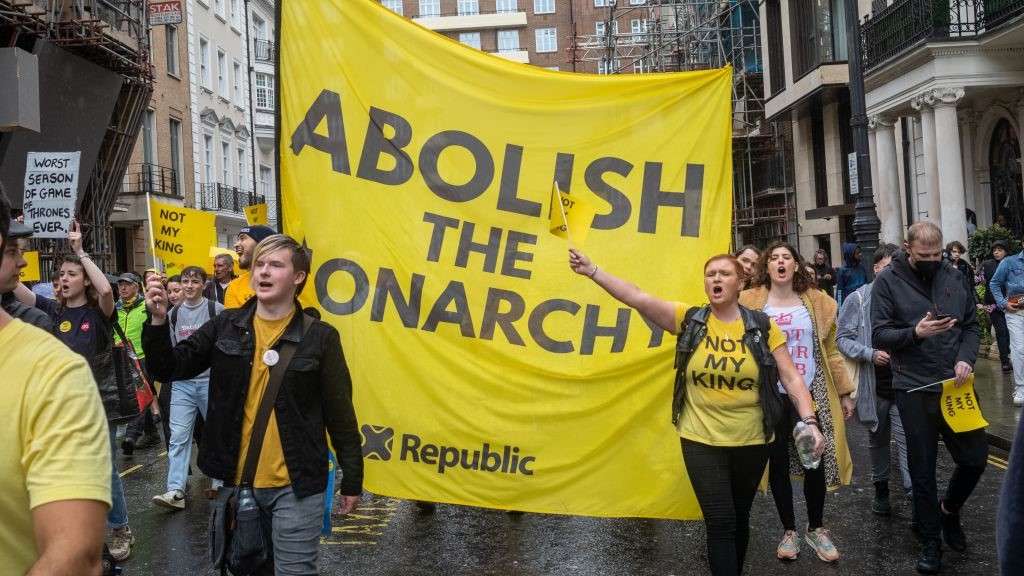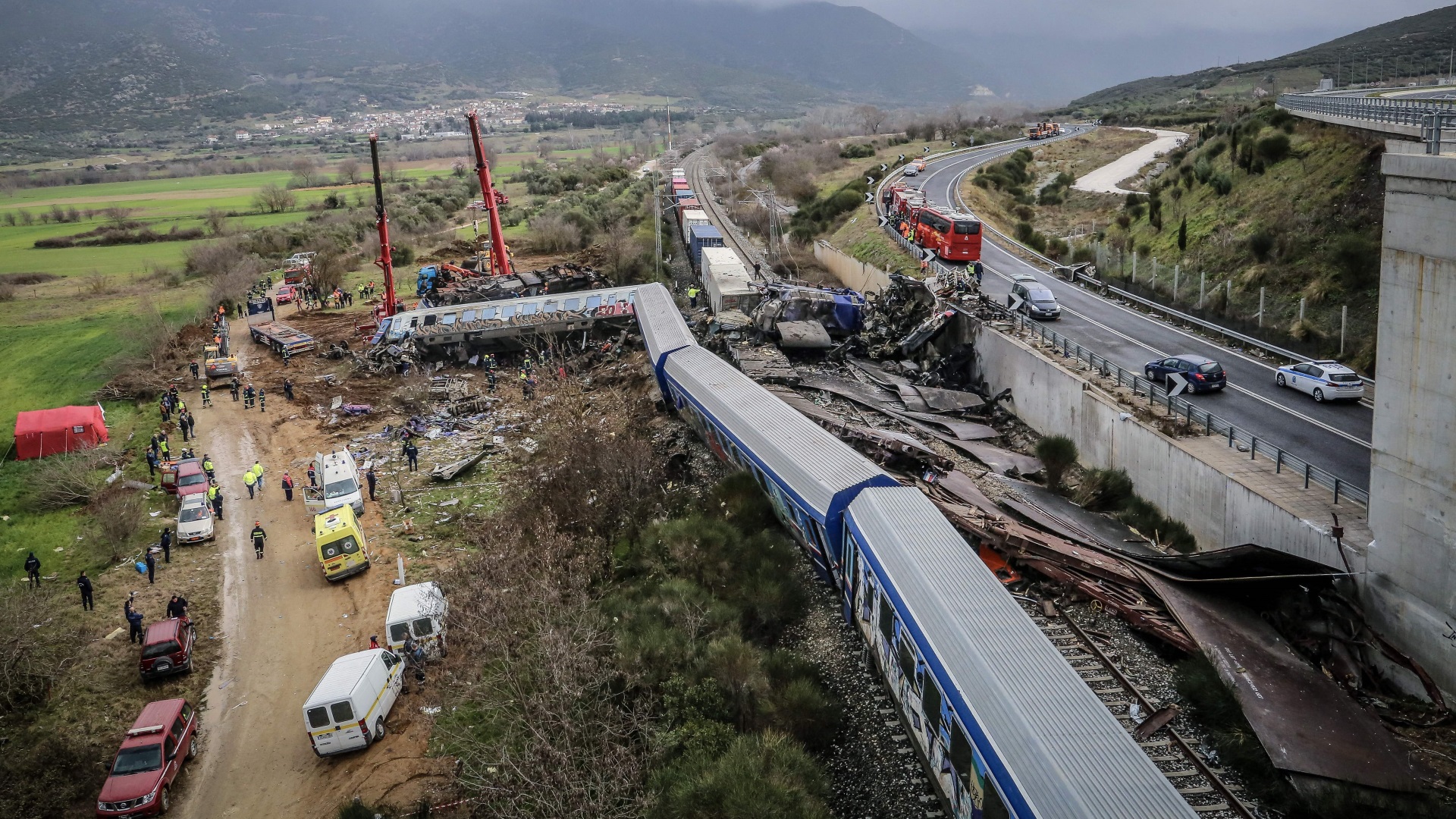So, Matthew d’Ancona fears a UK president might be Boris Johnson, or similar (“Are you ready for president Johnson?”, TNE #339). But it doesn’t have to be like that. We don’t need a president wedded to a political party.
The ideal UK president would fill the political role currently occupied by the monarch. He or she would have no political allegiance, nor be allowed to vote while in office. The post would be non-dynastic, and the holder would be elected by eligible voters in the UK.
But of course, it isn’t that simple. You can’t just unravel 1,000 years of tradition by a simple act of parliament. What about the Commonwealth? All 15 sovereign states would also have to become republics. The likes of Australia, Canada and New Zealand having to accept a president elected by the UK would be unacceptable. And a president elected by all the peoples of the 15 states would be a recipe for chaos.
Then there is religion to consider. How could a president who might be a non-believer be head of the Church of England, and over whose appointment the Church would have no say?
My compromise: have a president AND a monarch. The president would be head of state. The monarch’s role would be entirely non-political and ceremonial.
But they would not be supported by the public purse (the King is stinking rich, after all) and if they wanted a coronation they would have to pay for it themselves. However, they would continue to head the CofE.
Christopher Ralls
Eastbourne, East Sussex
Matthew d’Ancona asks, “If you want a republican UK, are you ready for president Boris Johnson?” The answer is yes, if people vote for him.
Presidents are not elected for life, and are not succeeded by their sons or daughters by default.
Paul Weatherall
I would not vote for Boris Johnson as president, but luckily we would have 66,721,342 others to choose from.
Michael Greenan
Matthew d’Ancona’s devil’s advocacy for our monarchy was fun but flawed. If King Edward VIII hadn’t abdicated, we would have had a fascist sympathiser as monarch while fighting Hitler. And if President Trump had been King, the US would be stuck with him. To paraphrase Churchill, democracy is the least worst option. We should elect our head of state.
Dr Michael Lloyd
Dunbar, East Lothian
The point of democracy is that those who do badly in the job can be removed after a fixed term. Just because change might introduce new dangers does not mean we should not fix something that is already fundamentally wrong and broken.
Alex Bailey
You could always write a constitution and limit the powers of the president. And have the presidential vote out of sync with the parliamentary elections?
Nigel Carver
This old argument again? Much better to live in a feudal system because democracy sometimes doesn’t go the way we want it to?
Dave Hadwin
J Wells and Matthew Pocock (Letters, TNE #339) both style the British monarchy “irrelevant”. We witnessed our constitution in action in September 2022. Our democratically deposed prime minister was to be democratically replaced by an elected successor: two botched attempts and a nearly crashed economy followed. The electors who offered us Liz Truss followed by Rishi Sunak were a section of the Tory Party.
Meanwhile, the death of the Queen ended a 70-year reign; her replacement followed the clearly laid-down rules and took 24 hours. We knew what we were getting and were grateful that Westminster chaos could be offset by constitutional monarchy. We have a constitution that is very old but which works well. Let’s be grateful.
Jenny Banks-Bryer
Birmingham B13
Identity trick
Frank Palmer (Letters, TNE #339) asks why the government changed the law to force people to take photo ID with them when they vote. It is a deliberate attempt to disenfranchise the sort of people who vote against the Conservative Party.
If you examine the list of acceptable forms of photo ID, it is heavily biased in favour of the types of people who vote Conservative.
Colin Price
Ilford, Greater London
Honour Berry
Reading the extract from Rory Carroll’s “Killing Thatcher” (TNE #339) brings back the sheer horror of Brighton, October 12, 1984.
Like most Irish people at the time, I vehemently disagreed with the views of Margaret Thatcher and the Conservative Party on Northern Ireland and the Republic of Ireland. Like most Irish people, I was also utterly opposed to and appalled by the murderous actions of the IRA. But there is another Brighton bomb story that needs to be told – the story of Jo Berry, the daughter of Sir Anthony Berry MP (one the five people killed in the Brighton bomb).
As founder of the charity Building Bridges for Peace, Berry has worked tirelessly and quietly for over 20 years with Patrick Magee, the man who planted the bomb that killed her father (and who was released under the Good Friday Agreement in 1999). Together, Berry and Magee have shared their unique experience of building bridges for peace, understanding, and reconciliation.
Berry’s personal journey of selfless transformation and outreaching is a truly remarkable one, and needs to be acknowledged. With this in mind, perhaps King Charles would consider including Berry in his next honours list.
Chris Fitzpatrick
Dublin
Vegging out
Re: Mandrake on Andrew Bridgen (TNE #339). I was born and bred in Leicestershire. What is it about my region that produces Bridgen and Gary Lineker, two people with a connection to the fruit and vegetable business who get into trouble for expressing controversial, if dramatically different, points of view?
Sue Pritchard
Early critic
A friend and I are looking forward to visiting Dulwich Picture Gallery next month to see Berthe Morisot, Shaping Impressionism. Reading Claudia Pritchard’s article on Morisot (“The woman who opened doors”, TNE #339), I was puzzled at the mention of Joshua Reynolds criticising her work. Reynolds died in 1792 and Morisot was born in 1841.
Fiona Jackson
Carshalton, Surrey
Claudia Pritchard writes: Apologies for the error; Reynolds was critical of the French 18th-century style that Morisot admired, rather than of her work
On a Wim
Charlie Connelly’s Great European Life of cyclist Wim van Est (TNE #338) was a brilliant piece. Such a great story. As a fan of the Tour de France for many years, I am amazed I have never heard it before. Beautifully written.
David Cunningham
Via Facebook
Living with zee
Re: Peter Trudgill’s “From Aitch to Zed” (TNE #338). Our daughter, a London-based architect and academic who was a straight-A student throughout school and has a first-class degree, grew up on Sesame Street, says zee, spells colour without a u, and harbours many other “Americanisms”. It doesn’t seem to have done her academic or professional development any harm.
English is, happily, a living language and continues to evolve. The moment we place restrictions on the development of language and ban change is the moment the language begins to die, loses its relevance, and slips into becoming an archaic language, like others have done.
Kevan R Matthews
Via Facebook
At school in the Scottish Borders, most folks pronounced J as “jie” to rhyme with lie.
Allan Connochie
Freedom fight
The “steady creep of Tory attacks on our freedom” (Letters, TNE #338) is not a steady creep but an onslaught. They know they will get trounced at the general election and are adopting a scorched-earth policy, pushing through draconian laws before they leave office.
Chris Jones
Via Facebook
PR dictators
The cri de coeur from minority parties for the introduction of proportional representation throughout the UK (Letters, TNE #337) is well rehearsed, but not so often mentioned is the fact that both Mussolini and Hitler came to power through this system of voting.
I am reminded of Churchill’s oft-quoted words of November 11 1947, which presumably refer to the British first-past-the-post version: “No one pretends that democracy is perfect or all-wise. Indeed, it has been said that democracy is the worst form of government except for all those other forms that have been tried from time to time…”
Robert Parker
West Bridgford, Nottinghamshire
Lands of plenty
Just come back from a road trip via the Channel Tunnel through France, Belgium and Germany, the first for over three years. The usual high standards and reasonable prices wherever we stayed, significantly better value than in the UK. Once we got to our destinations, we used public transport, which was cheap, interconnected, and reliable.
One thing has changed, though. We did not see one single UK-registered lorry during more than 2,000 miles of driving, much of it on motorways. There used to be lots, especially on the roads near Calais. Proof that, as we know thanks to TNE, far fewer goods are being exported to the EU.
Presumably, once Brexit rules about checks on goods entering the UK are actually enforced, there will be fewer trucks of whatever EU origin entering the UK – great news for drivers on the M20 and the people living around it, but not the best for the economy nor that central tenet of the Tory mantra – customer choice. When we asked about UK products, they shrugged and told us they can get all they need within the EU, usually at a better price.
Phil Green
After a wonderful three weeks in four European countries, it’s been hard coming back. Britain feels less like a “third country” and more like a “third world country”.
It’s hard to come back from well-stocked supermarket shelves, choice and richness, abundant lorries, bustling industry and, above all, an absence of aggro (unless you include the riots in Paris).
Brexit has done a good job of making EU countries quite happy to be in it – they look at us and shudder.
Chris Shepherd
Sunny side up
I have to drive to southern Germany every now and then, on more or less the same route each time. In the past five years, the number of solar panels on the route – especially on commercial buildings like warehouses and factories and on private houses has increased dramatically.
There is now a new phenomenon: using the south- and west-facing areas adjacent to motorways, especially where there are banks of earth on the sunnier side, to locate thousands of solar panels. In some places, bulldozers are creating earth banks to site the panels more effectively. They are not generally being installed on agricultural land.
How can the UK government claim we are a world leader in renewables when it is still not mandatory to build new houses with solar roofs, nor for business owners to install solar panels on the vast acreages of warehouse roofs, let alone alongside thousands of miles of motorway, on land that cannot realistically be used for any other purpose? latter’s reluctance.
Rex Nesbit



